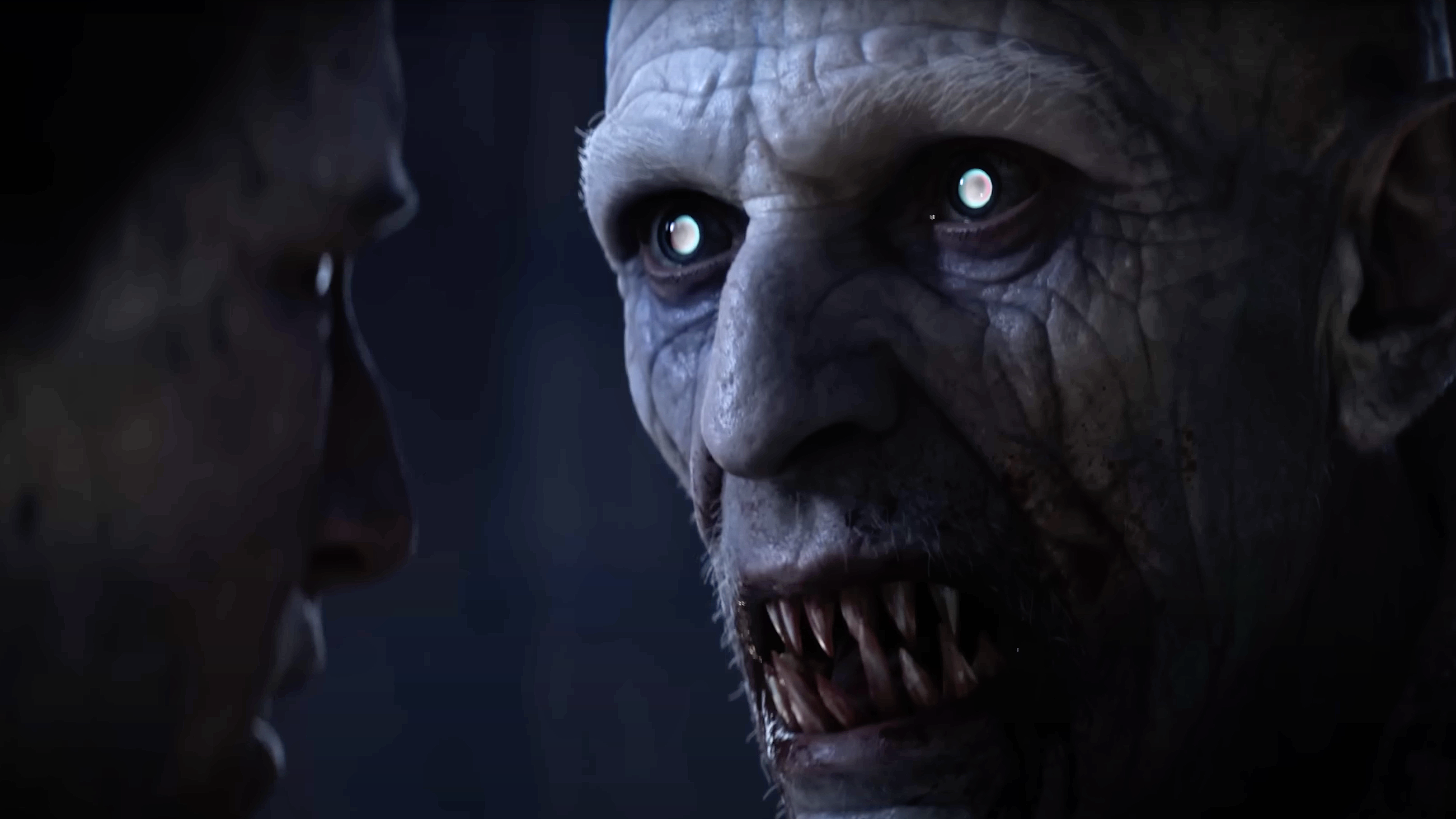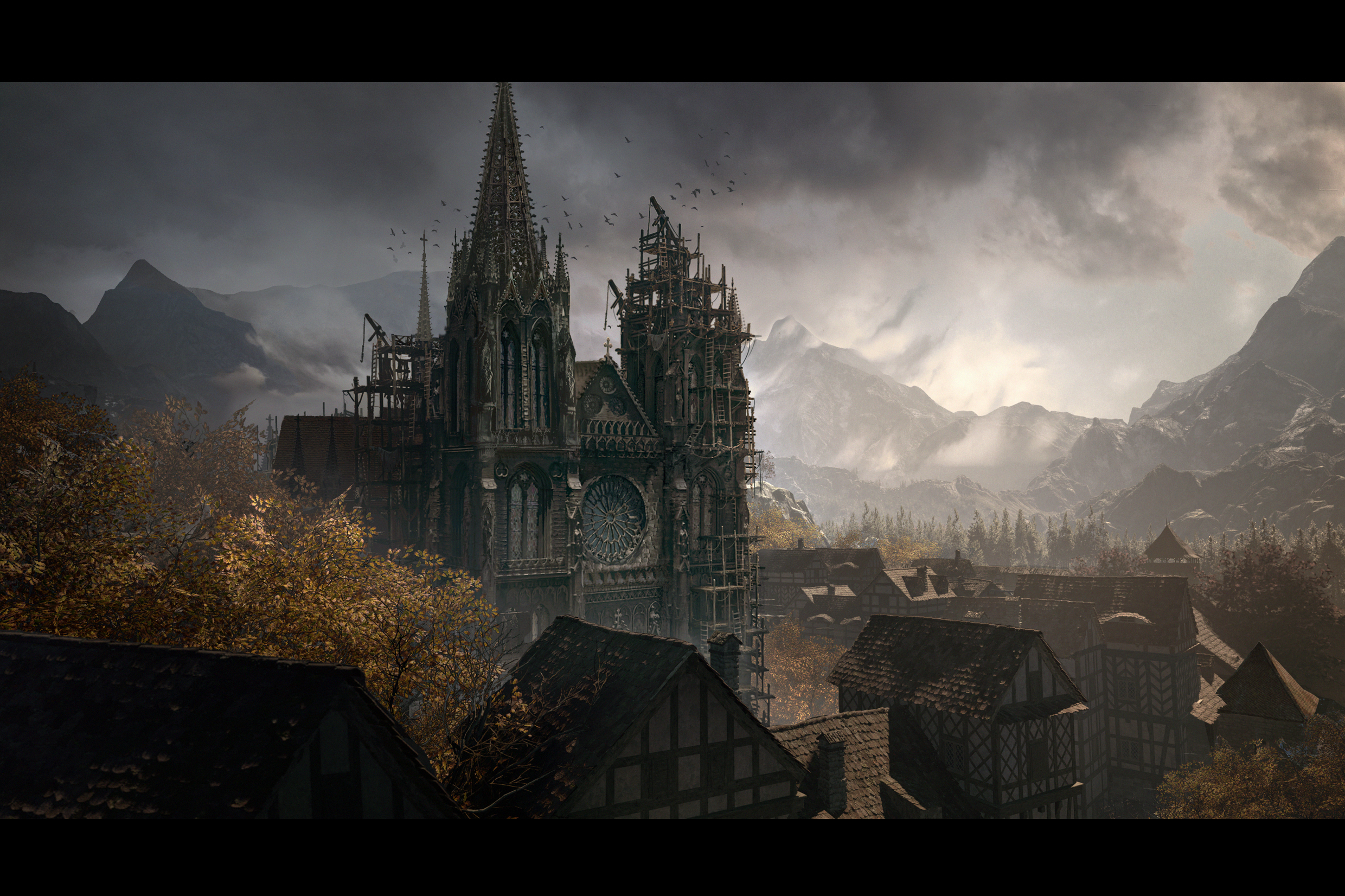The Blood of Dawnwalker's creative director explains how the RPG's narrative sandbox works: 'the core of it is maximising players' freedom'
Evolving the fantasy RPG at its core

I traveled to Rebel Wolves recently to speak to key developers about its debut RPG, The Blood of Dawnwalker, which promises a dark fantasy cinematic adventure involving vampires deep within the Carpathian Mountains.
As well as speaking to the game's director, Konrad Tomaszkiewicz, the man who directed the now legendary fantasy RPG, The Witcher 3: Wild Hunt, about why he left CDPR and why he decided to cast a half human half vampire as the game's protagonist, I also spoke to the game's design director, Daniel Sadowski about the game's unique 'time as a resource' mechanic and creative director Mateusz Tomaszkiewicz about the studio's 'narrative sandbox' approach to game design.
“So narrative sandbox refers to the way we craft our content,” says Mateusz. “It’s how we allow you, the player, to interact with it. So the core of it is maximising players’ agency and freedom of choice, while, at the same time delivering the high-quality narratives that we are known for crafting in the past. Dawnwalker is not going to be a game where it’s a pure sandbox, where you’re just focusing on the gameplay. We do want you to experience these moments with the world of the characters, and the emotions that these situations can evoke, and so on, and so forth. But, at the same time you are looking for ways of maximising freedom as you do.
"Narrative sandbox informs not only the main quest—it also informs all the other types of content that we have. We are trying to make tie-ins from these. You know, you might encounter seemingly inconsequential, smaller activities of the world, but we are trying to make them tie into this main narrative. It kind of feels like a synergetic approach where all this content helps each other to be this cohesive whole. It’s not like there is the main story, and there are just sidequests that are unrelated to it. All of it kind of overlaps a little bit, if that makes sense."

Daniel, as the game's design director, then expands on the narrative sandbox approach, saying that with it Rebel Wolves is “trying our best to balance everything out, and there is a lot of cool content that you can interact with. We are trying to tie-in all of that content so that things affect each other in cool ways, and give you a lot of freedom as to what to do next. Sometimes it feels like playing a paper RPG where you can really just go into the world, and pick your adventures. That’s sort of what we are aiming for here with the narrative sandbox as well.”
From my point of view, this focus on having the world react around The Blood of Dawnwalker's half human half vampire protagonist, Coen, feels reminiscent of the reactivity and interconnected-ness of Larian Studio's RPG masterwork, Baldur's Gate 3, which wowed the gaming world with its ability to let players dictate their own path through its epic overarching story. However, where this game differs is in how the narrative sandbox is paired with the game's time as a resource mechanic, which sees the game operate on a day and night cycle where every quest or task completed by Coen advances the game's clock to some degree. This means that Coen cannot complete every activity on offer at any one time, with both action and inaction having consequences. And, with Coen having only 30 days in order to fight back against the game's antagonists, a powerful vampire clique who have taken over the valley in which he lives and kidnapped his family, time really is a precious resource.
From speaking to Rebel Wolves' devs in person, my sense from them is that The Blood of Dawnwalker's main goal is to offer gamers meaninful choices that, even if small, will impact the game both in terms of time and in terms of the world state going forward, with a vast, interconnected web of possibilities and game states on offer that will react to gamer choices and shape their personal narrative. As a fan of dark, mature, complex RPGs where my choices genuinely matter, it all sounds incredible to me, if not very ambitious. This studio has legendary RPG heritage running in its veins, though, so I for one would not bet against it.
The biggest gaming news, reviews and hardware deals
Keep up to date with the most important stories and the best deals, as picked by the PC Gamer team.
Rob is editor of PC Gamer magazine and has been PC gaming since the early 1990s, an experience that has left him with a life-long passion for first person shooters, isometric RPGs and point and click adventures. Professionally Rob has written about games, gaming hardware and consumer technology for almost twenty years, and before joining the PC Gamer team was deputy editor of T3.com, where he oversaw the website's gaming and tech content as well its news and ecommerce teams. You can also find Rob's words in a series of other gaming magazines and books such as Future Publishing's own Retro Gamer magazine and numerous titles from Bitmap Books. In addition, he is the author of Super Red Green Blue, a semi-autobiographical novel about games and gaming culture. Recreationally, Rob loves motorbikes, skiing and snowboarding, as well as team sports such as football and cricket.

